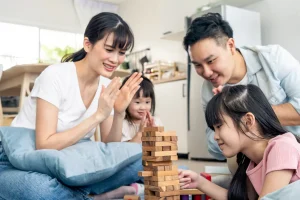How to improve your child’s creative thinking skills?
![]()
- Posted by abrakadoodle.com.sg
- Categories Early childhood development
- Date 30 March 2022
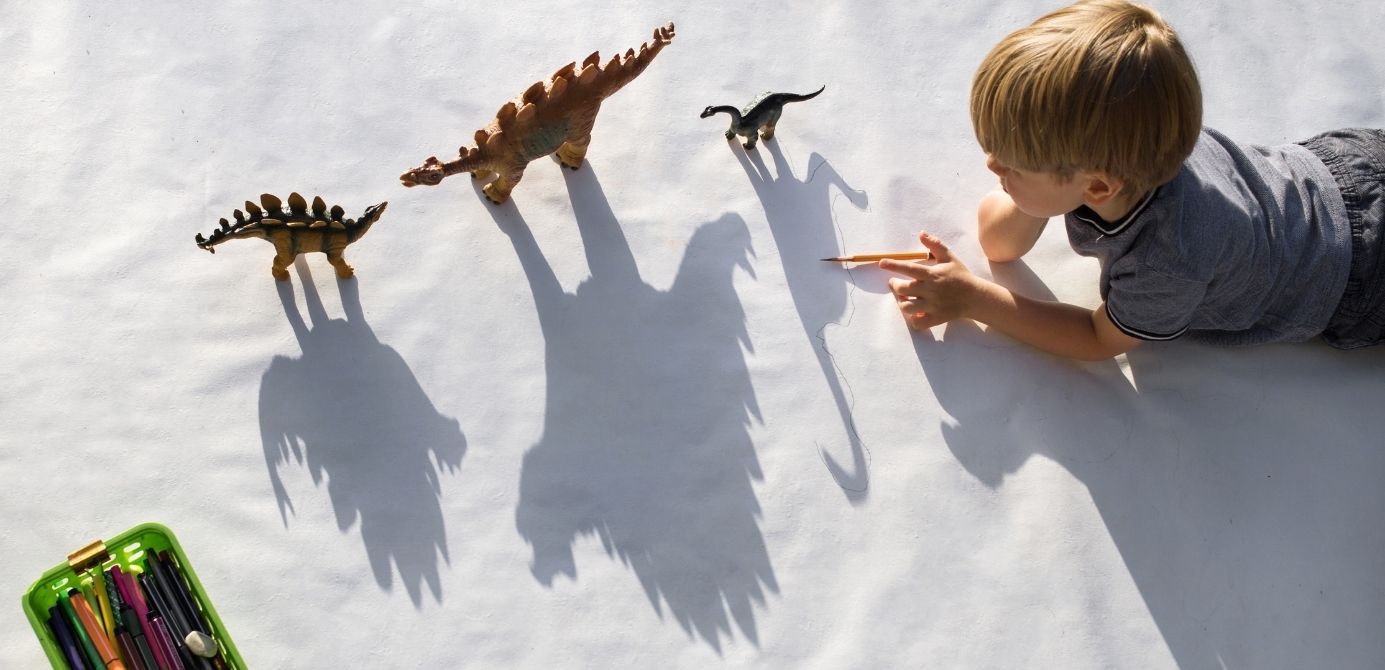
Do fish sleep at night like us? Why is the sky blue? How do snakes move if they don’t have legs? What is on the other side of the moon? Most of us will have our own memories of similar delightful and often original and unexpected examples of childhood curiosity.
When our children ask questions, we try and answer them with all the clarity and honesty that we can muster. Sometimes we are stumped for answers. But we immediately recognise their importance and google to help our children develop and sharpen their ability to ask questions and increase their knowledge.
The ability to notice what is happening in the world and ask questions is a key element in the development of children’s imagination and creativity to become successful learners. Learning to think creatively and critically is perhaps the most important skill set that today’s children will need for the future.
Table of Contents
ToggleWhy is creative thinking skill important?

In today’s rapidly changing world, children need to be able to do much more than repeating a list of facts; they need to be creative as well as be able to make sense of information, analyse, compare, make inferences, and generate higher order thinking skills.
Discovering ways to develop creative thinking skills is one of the most important elements of early learning and childhood development. By being involved with imagination and in creative activities, your child can enhance her physical, social, mental, and emotional skills as well.
Creativity is the highest form of self-expression. As a matter of fact, there is nothing more satisfying and fulfilling for your child than to be able to express her thoughts, feelings and ideas freely. The process of creative learning also helps encourage problem-solving and critical thinking skills to grow.
Creating opportunities for play
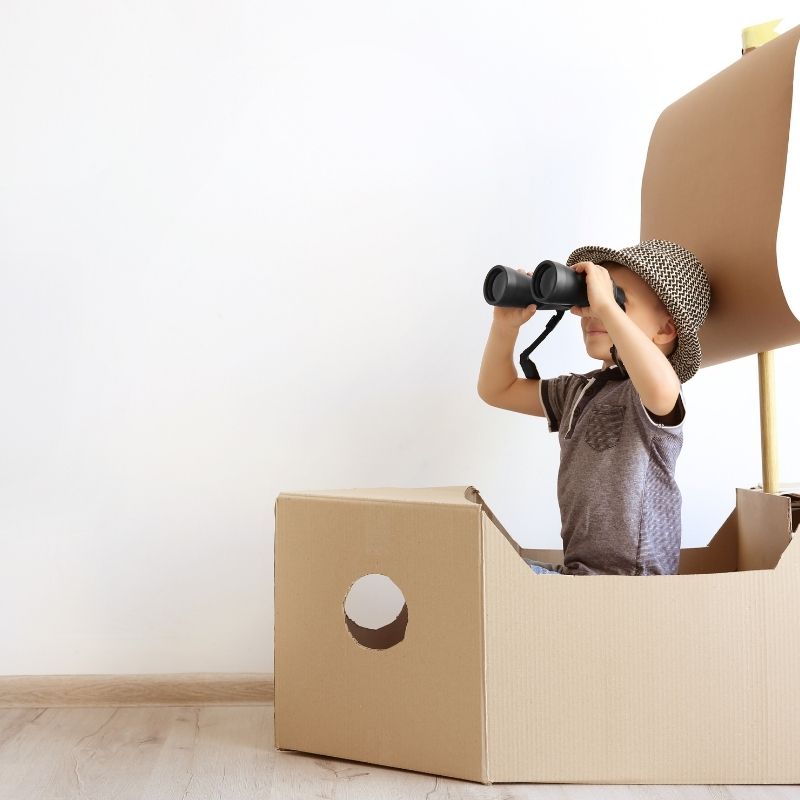
Being able to check how things work is critical to developing creative and critical thinking skills. Bear in mind, that it is only during play that your child will find it easier to explore the “cause” and “effect” of what is happening in her world.
Formulating and asking questions such as, “What happens if I drop a spoon over and over again,” Or “what happens when I roll two marbles down an incline at the same time?” Or figure out an answer by asking, ”how can I get the block to balance on the top of this tower I am building?”
By providing ample space for playing, along with time for pretend play, you will provide open-ended opportunities for your child to try something and see what happens. Then move on to try something else and see if she can create a different reaction. These hands-on experiences provide an integral foundation for the development of abstract critical thinking skills.
Encourage freedom & independence
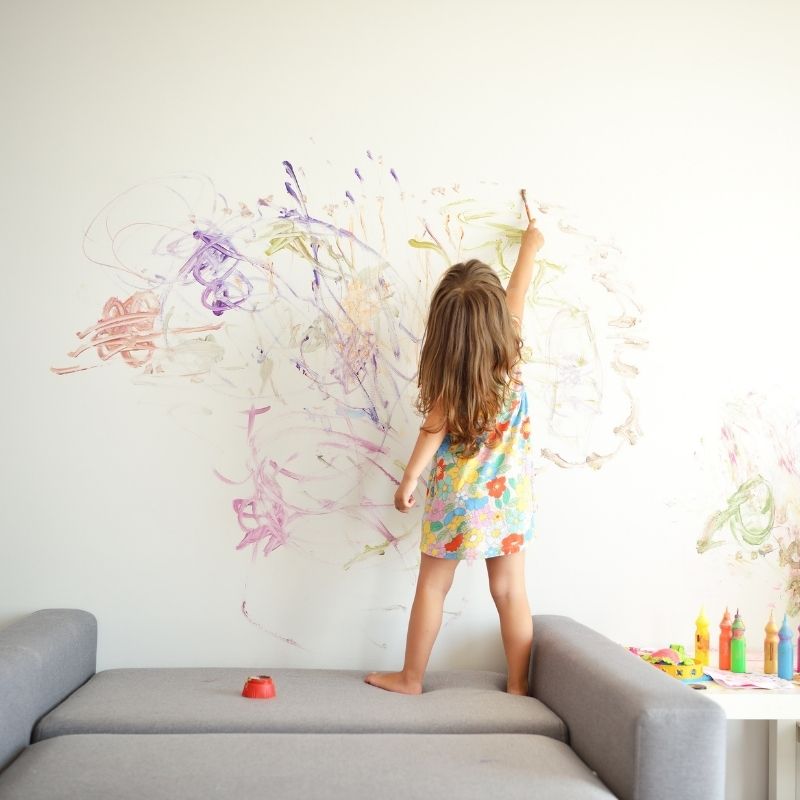
When children are left to themselves, all they have is their imagination and the resources at hand. This is a great way to let a child explore her own interests and ideas. Avoid overmanaging. You can even tell your child to come up with her own game, project or plan for the day. This is just another way to nurture her creative side.
The general idea is to help your child pursue her passion. Pay attention to the things your child shows a keen interest in, but bear in mind children can be fickle about what they like at the moment. So don’t let that make you feel bad when your child changes her mind. Simply encourage, for all you know, your child might come back to something she had tried before. Just give it time.
It is best to avoid completing a task for your child. This may be challenging at first but will become more rewarding for you to just wait and watch your child, carefully readjust and manoeuvre to grasp a toy on her own. The exercise encourages your child to problem solve and develop executive functioning skills in real-time!
Don’t incentivise creativity
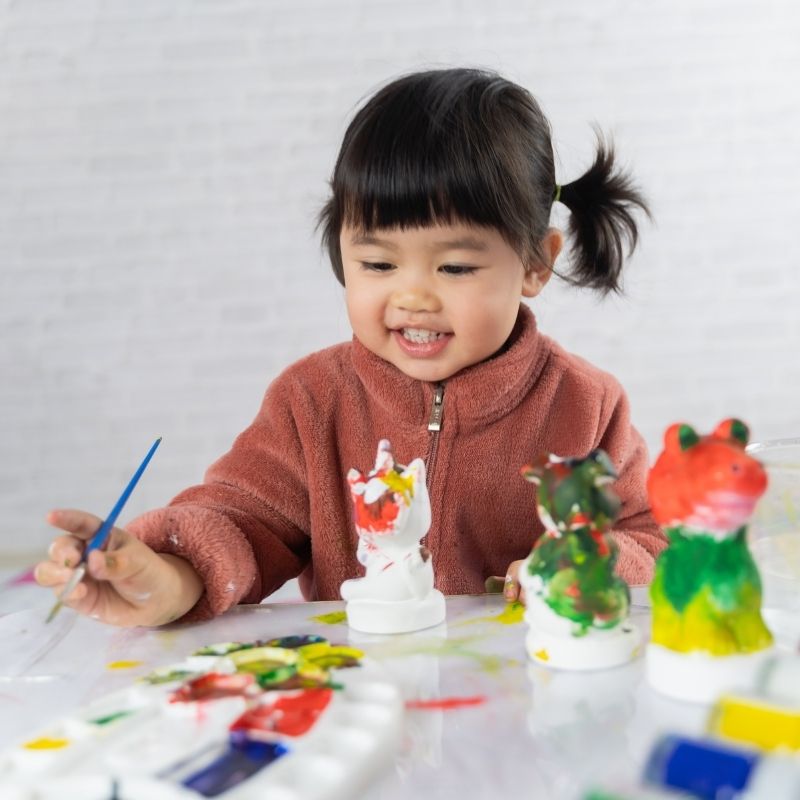
So you want to motivate your child to be creative? While it will seem okay to reward a child when she does it right, Remember, the key to long term creative success is to realize that being creative is a reward by itself. Being intrinsically motivated drives the mind to be free.
Creativity is not a box-ticking exercise, but fluid and organic process. And it is best that the process stays that way. Rewarding creativity will only imprison the mind.
Better will be to get into the habit of questioning. Ask your child how she came up with her idea? Whether she enjoyed the process of making her art or not? Focusing on the thought process rather than the end result will deepen her passion and understanding rather than rewarding her for making something.
Creative thinking involves the use of imagination and ideas. Coming up with something of value – a physical invention, piece of art or a solution to a problem. Creativity also plays a significant role throughout our education, working careers and life as it has a positive impact on success. And the best part is creativity can be nurtured. The earlier you realize that the better will the outcome be.
About Abrakadoodle
This is the kind of learning experience that inspire children to think different, be innovative, and devise ways to discover interesting things found in the real world. Changing the way children learn to use their imagination and their minds to think, play and learn.
If you like to enrol your child in creative art classes or participate in Imaginative Thinking workshop or Art Projects, give Abrakadoodle a call. Or better still, make an appointment with the head of a centre near you. Get a hands-on exposure to an experience that will make you see art in a way that adds value to life.
Please note: Abrakadoodle centres are thoroughly sanitized every day — the tables, the chairs, the children’s work stations and everything else the child might touch is made safe and clean. Please wear a mask, wash hands frequently, and practice social distancing.
You may also like

The Impact Of Colour On A Child’s Development
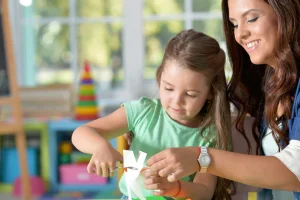
How Collage-making Activity Helps A Child To Think Creatively
